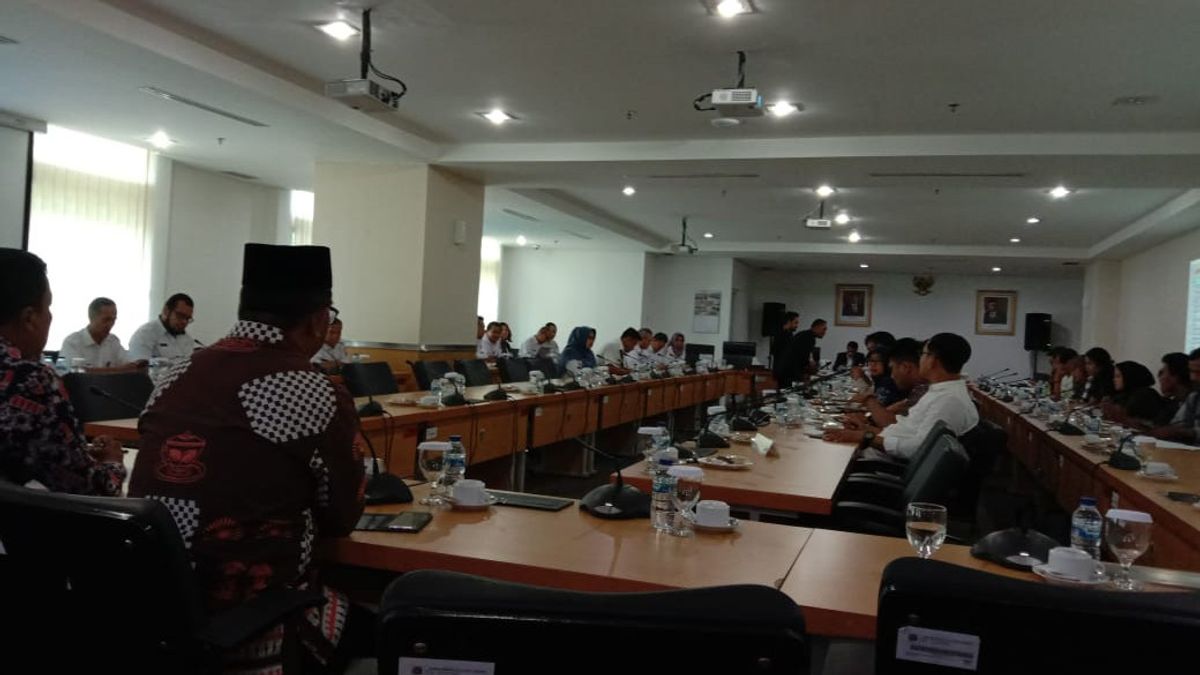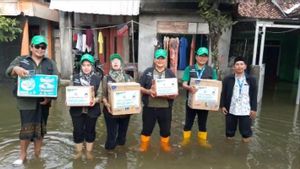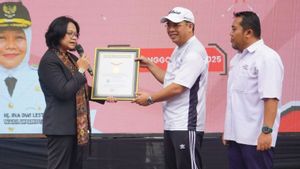JAKARTA - The draft regional regulation (raperda) of DKI Jakarta regarding smoking-free areas (KTR) is again proposed to be discussed in 2020.
This Raperda has been proposed several times in the previous year. However, to coincide with the 2019 general election season and the replacement of DPRD members for the 2014-2019 and 2019-2024 periods, the discussion of this draft regional regulation was not completed.
The Raperda KTR will be one of the 12 priority draft regional regulations for 2020. The proposal for this draft regulation came from the DKI Provincial Government, the Golkar Party faction, PKS and PSI.
Deputy Chairman of the Regional Regulation Establishment Agency (Bapemperda) DPRD DKI, Dedi Supriadi, explained that the consideration of the inclusion of the draft regional regulation on KTR is because this regulation is in direct contact with the community.
"The previous regional regulations have actually regulated air pollution prevention. However, it does not specifically regulate B3 waste (hazardous and toxic materials) which can be included here (raperda KTR)," said Dedi at the DPRD DKI Building, Central Jakarta, Wednesday, November 20, 2019.
Dedi realized that he could not prohibit the use of cigarettes for the community. Therefore, this draft regulation will regulate how smoking does not deprive people of the right to breathe healthy air. You do this by arranging smoking areas in public areas and open spaces. The goal is that cigarette smoke does not contaminate other people.
"We see that the public is really waiting for this (draft regulation). We are also sure that friends who smoke also understand the importance of the rules," he said.
At the Bapemperda general hearing (RDPU), researcher Eva Rosita, a researcher at the Indonesian Consumers Foundation, fully supports the draft local regulation on KTR which will be discussed next year.
Eva admits that her party has been pushing for the draft bylaw since 2010. The reason is that they are aware that more and more children are trying to smoke.
"Child smokers in 2013 were 7.3 percent and in 2018 it increased to 9.1 percent. Special rules are needed so that they can be enforced so that children and passive smoking are protected," said Eva.
Contacted separately, the head of the Kretek Community, Aditia Purnomo, actually encouraged the issuance of a regional regulation on KTR. However, he has a special note to the local government about equal rights for smokers, at least there are places to smoke either indoors or outdoors.
"The KTR Perda must accommodate all parties. If the regional regulation only features threats and sanctions so that people do not smoke carelessly, but it does not emphasize that the availability of smoking rooms must be available in many places, the regulations will not be effective," Aditia told VOI.

He gave an example, for example in tall buildings, building managers must provide at least one smoking room every 5 to 10 floors. This can prevent smokers from stealing opportunities to smoke in hidden places. "It could be in a closed smoking room and then installed with hexos to maintain air circulation. It's flexible," he said.
Aditia is aware that Article 115 of Law Number 36 Year 2009 concerning Health states that the determination of non-smoking areas must be carried out by local governments.
"That is actually what the local government has not accommodated. They only provide sanctions for consumers who smoke in KTR, they do not want to impose sanctions on place managers who do not provide space," he concluded.
The English, Chinese, Japanese, Arabic, and French versions are automatically generated by the AI. So there may still be inaccuracies in translating, please always see Indonesian as our main language. (system supported by DigitalSiber.id)









